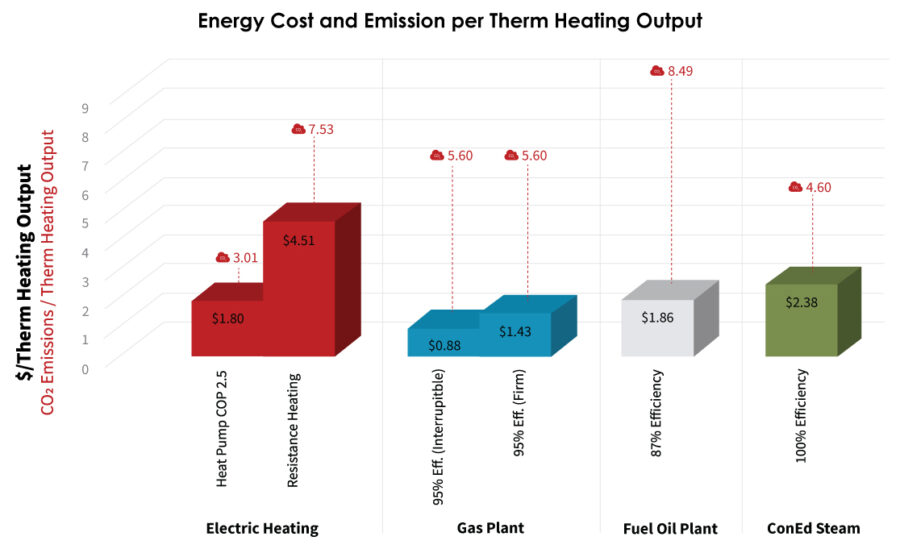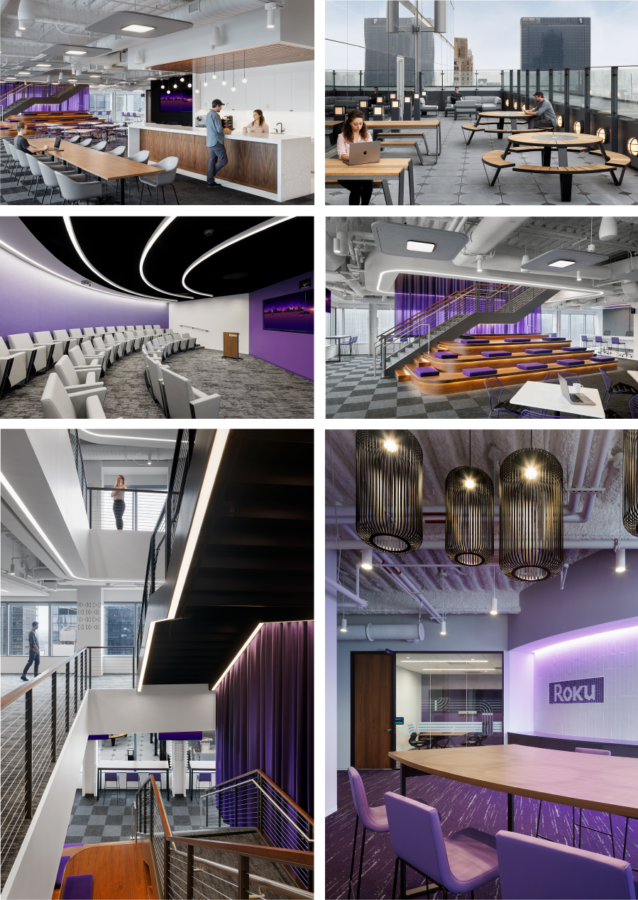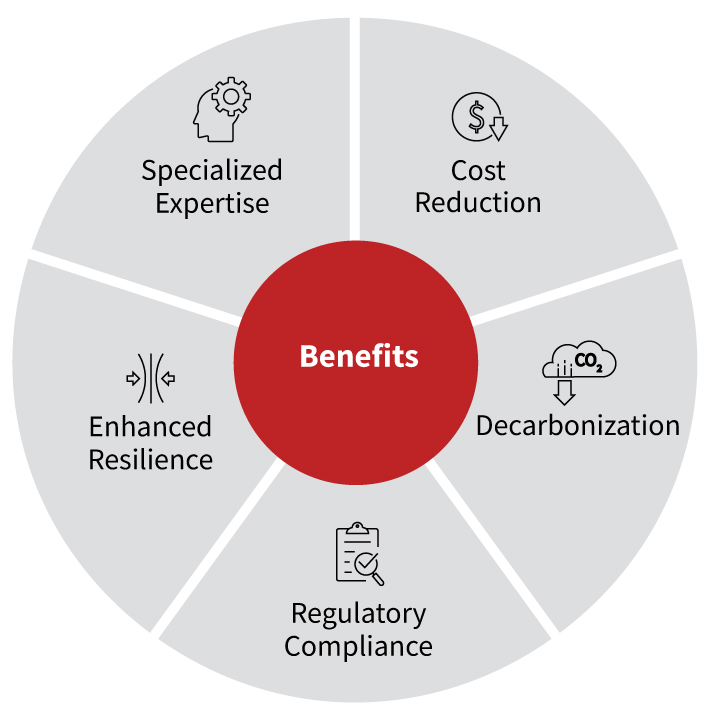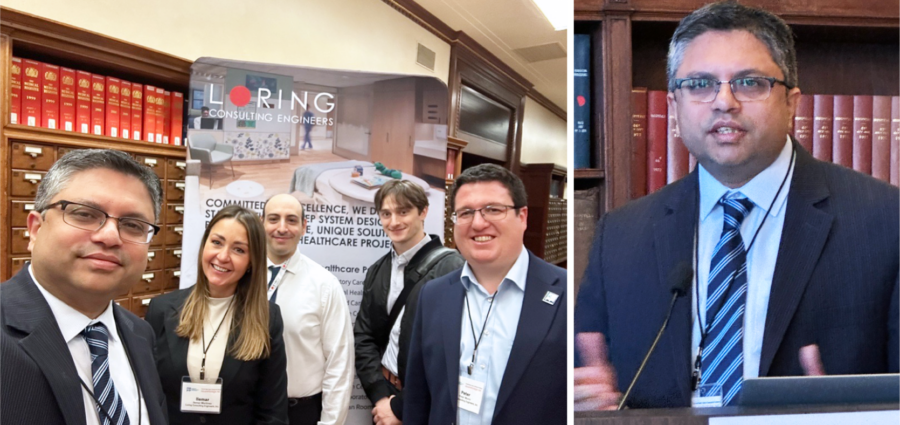Loring Consulting Engineers, Inc. is pleased to welcome Technical Directors, Patrick Green & Demetrios Plessias
We are thrilled to announce the newest additions to our leadership team: Patrick Green and Demetrios Plessias, both of whom have joined Loring as Technical Directors.
Patrick Green, PE brings over 25 years of expertise in mechanical systems design and construction administration. His experiences have included commercial, hospitality, retail, academic, and government projects. A LEED-accredited professional, Patrick excels in integrating sustainable design concepts and will lead our mechanical design teams through all project phases, ensuring Loring’s committed level of quality and client satisfaction.
Demetrios Plessias, PE, with over 24 years in electrical engineering systems design, is the newest addition to our electrical leadership. His broad experience in electrical solutions and passion for innovation will be a valuable asset to the firm. Demetrios’ skills in communication, teamwork, and organization will be instrumental as he takes on new challenges and opportunities with Loring.
Please join us in welcoming Patrick and Demetrios to the Loring family! We are excited to see the impact they will make.
Building Electrification
As the world struggles to reduce our impact on the environment, Loring leads the way by designing and implementing strategies to utilize renewable energy sources and reduce the carbon footprint where we live and work. New codes and standards assist our efforts by pushing owners, utility companies, institutions, and city agencies to find ways to reduce greenhouse gas emissions. Loring is working with our clients to study, design, and implement electrification and decarbonization strategies for new and existing buildings and campuses.
Codes and Standards
Many states and cities in the USA have begun implementing plans to reduce their carbon emissions. For example, New York City’s 80x50 initiative is an aggressive plan to reduce carbon emissions by 80% by 2050 from a 2005 baseline. In 2016, buildings alone contributed approximately 67% of New York City’s emissions. These emissions must be curtailed significantly in the years to come to achieve the city’s 80x50 goals. One catalyst to encourage owners to reduce the carbon output in buildings is through Local Law 97, which imposes a fine on buildings that exceed their allowable tons of carbon emissions on an annual basis. The Local Law increasingly lowers the allowable carbon emission thresholds over time to compel owners to develop long term strategies to lower carbon footprint while simultaneously reducing or eliminating penalties.
Loring aids our clients by researching incentives available through federal, state and local governments, and local utility companies and by helping property owners make the transition to an electrified building less expensive and more desirable. Loring works in conjunction with our clients to develop a cost effective and workable strategies to electrify their space, building, or portfolio.
 Selecting Electrification Equipment
There are many different electrified systems and there are multiple factors that must be considered when choosing the best system for a building. For example, apartment buildings typically have an air conditioning system that serves each apartment with individual controls and separate metering. In these instances, a packaged terminal heat pump (PTHP) or a Variable Refrigerant Flow (VRF) system are great options.
For other larger, commercial and institutional buildings, a centralized system may be more appropriate. A centralized plant typically provides chilled and hot water throughout the building to terminal units which provide the heating and cooling. Both the hot and chilled water in the building is provided by heat pumps capable of switching between either the heating or cooling modes depending on the building loads. These heat pump systems can either be water or air cooled. Air-Cooled Heat Pumps are the most common, but when the building sits on a larger site, a geothermal loop can be considered, and a Water-Cooled Heat pump can provide heating and cooling in a more sustainable and less energy consuming way.
Selecting Electrification Equipment
There are many different electrified systems and there are multiple factors that must be considered when choosing the best system for a building. For example, apartment buildings typically have an air conditioning system that serves each apartment with individual controls and separate metering. In these instances, a packaged terminal heat pump (PTHP) or a Variable Refrigerant Flow (VRF) system are great options.
For other larger, commercial and institutional buildings, a centralized system may be more appropriate. A centralized plant typically provides chilled and hot water throughout the building to terminal units which provide the heating and cooling. Both the hot and chilled water in the building is provided by heat pumps capable of switching between either the heating or cooling modes depending on the building loads. These heat pump systems can either be water or air cooled. Air-Cooled Heat Pumps are the most common, but when the building sits on a larger site, a geothermal loop can be considered, and a Water-Cooled Heat pump can provide heating and cooling in a more sustainable and less energy consuming way.
 Comparing Utility Costs and Emissions
In many areas of the country, it costs more to produce the same amount of heat using an electrified system than it does to utilize a traditional gas system. For this reason, it is very important to utilize an efficient electrified system. Using electric resistance heating can be two to four times more costly than using a comparable heat pump system, depending on the heat pump’s efficiency. The chart below shows a comparison of difference in energy cost and CO2 emissions, depending on the utility rates (per therm of heating output).
Comparing Utility Costs and Emissions
In many areas of the country, it costs more to produce the same amount of heat using an electrified system than it does to utilize a traditional gas system. For this reason, it is very important to utilize an efficient electrified system. Using electric resistance heating can be two to four times more costly than using a comparable heat pump system, depending on the heat pump’s efficiency. The chart below shows a comparison of difference in energy cost and CO2 emissions, depending on the utility rates (per therm of heating output).
 In regions where the electric grid is expected to become fully decarbonized in the future, buildings with electrified systems will see a decreasing carbon footprint, ultimately achieving net-zero carbon performance. It is this future expectation that underscores the importance of adopting efficient electrified systems today to significantly reduce building emissions in the long term.
Summary
The world needs solutions to reduce our reliance on natural resources, reduce greenhouse gas emissions, and to move toward a more sustainable future. Loring Consulting Engineers is incorporating sustainable solutions into the built and living environments without compromising building performance and tenant comfort. We are partnering with other leaders in decarbonization and electrification to help reduce greenhouse gas emissions and foster engineering solutions that promote environmental stewardship.
Authors
Miguel Gaspar is a Principal and Lucas Smilios is an Associate at the New York office.
In regions where the electric grid is expected to become fully decarbonized in the future, buildings with electrified systems will see a decreasing carbon footprint, ultimately achieving net-zero carbon performance. It is this future expectation that underscores the importance of adopting efficient electrified systems today to significantly reduce building emissions in the long term.
Summary
The world needs solutions to reduce our reliance on natural resources, reduce greenhouse gas emissions, and to move toward a more sustainable future. Loring Consulting Engineers is incorporating sustainable solutions into the built and living environments without compromising building performance and tenant comfort. We are partnering with other leaders in decarbonization and electrification to help reduce greenhouse gas emissions and foster engineering solutions that promote environmental stewardship.
Authors
Miguel Gaspar is a Principal and Lucas Smilios is an Associate at the New York office.
 Selecting Electrification Equipment
There are many different electrified systems and there are multiple factors that must be considered when choosing the best system for a building. For example, apartment buildings typically have an air conditioning system that serves each apartment with individual controls and separate metering. In these instances, a packaged terminal heat pump (PTHP) or a Variable Refrigerant Flow (VRF) system are great options.
For other larger, commercial and institutional buildings, a centralized system may be more appropriate. A centralized plant typically provides chilled and hot water throughout the building to terminal units which provide the heating and cooling. Both the hot and chilled water in the building is provided by heat pumps capable of switching between either the heating or cooling modes depending on the building loads. These heat pump systems can either be water or air cooled. Air-Cooled Heat Pumps are the most common, but when the building sits on a larger site, a geothermal loop can be considered, and a Water-Cooled Heat pump can provide heating and cooling in a more sustainable and less energy consuming way.
Selecting Electrification Equipment
There are many different electrified systems and there are multiple factors that must be considered when choosing the best system for a building. For example, apartment buildings typically have an air conditioning system that serves each apartment with individual controls and separate metering. In these instances, a packaged terminal heat pump (PTHP) or a Variable Refrigerant Flow (VRF) system are great options.
For other larger, commercial and institutional buildings, a centralized system may be more appropriate. A centralized plant typically provides chilled and hot water throughout the building to terminal units which provide the heating and cooling. Both the hot and chilled water in the building is provided by heat pumps capable of switching between either the heating or cooling modes depending on the building loads. These heat pump systems can either be water or air cooled. Air-Cooled Heat Pumps are the most common, but when the building sits on a larger site, a geothermal loop can be considered, and a Water-Cooled Heat pump can provide heating and cooling in a more sustainable and less energy consuming way.
 Comparing Utility Costs and Emissions
In many areas of the country, it costs more to produce the same amount of heat using an electrified system than it does to utilize a traditional gas system. For this reason, it is very important to utilize an efficient electrified system. Using electric resistance heating can be two to four times more costly than using a comparable heat pump system, depending on the heat pump’s efficiency. The chart below shows a comparison of difference in energy cost and CO2 emissions, depending on the utility rates (per therm of heating output).
Comparing Utility Costs and Emissions
In many areas of the country, it costs more to produce the same amount of heat using an electrified system than it does to utilize a traditional gas system. For this reason, it is very important to utilize an efficient electrified system. Using electric resistance heating can be two to four times more costly than using a comparable heat pump system, depending on the heat pump’s efficiency. The chart below shows a comparison of difference in energy cost and CO2 emissions, depending on the utility rates (per therm of heating output).
 In regions where the electric grid is expected to become fully decarbonized in the future, buildings with electrified systems will see a decreasing carbon footprint, ultimately achieving net-zero carbon performance. It is this future expectation that underscores the importance of adopting efficient electrified systems today to significantly reduce building emissions in the long term.
Summary
The world needs solutions to reduce our reliance on natural resources, reduce greenhouse gas emissions, and to move toward a more sustainable future. Loring Consulting Engineers is incorporating sustainable solutions into the built and living environments without compromising building performance and tenant comfort. We are partnering with other leaders in decarbonization and electrification to help reduce greenhouse gas emissions and foster engineering solutions that promote environmental stewardship.
Authors
Miguel Gaspar is a Principal and Lucas Smilios is an Associate at the New York office.
In regions where the electric grid is expected to become fully decarbonized in the future, buildings with electrified systems will see a decreasing carbon footprint, ultimately achieving net-zero carbon performance. It is this future expectation that underscores the importance of adopting efficient electrified systems today to significantly reduce building emissions in the long term.
Summary
The world needs solutions to reduce our reliance on natural resources, reduce greenhouse gas emissions, and to move toward a more sustainable future. Loring Consulting Engineers is incorporating sustainable solutions into the built and living environments without compromising building performance and tenant comfort. We are partnering with other leaders in decarbonization and electrification to help reduce greenhouse gas emissions and foster engineering solutions that promote environmental stewardship.
Authors
Miguel Gaspar is a Principal and Lucas Smilios is an Associate at the New York office.Loring wins IFMA New York City Chapter 2023 Award for Design & Construction of a New Facility (Above 100,000 sq. ft.)
We are thrilled to announce that Loring has received the IFMA New York City Chapter 2023 Award for Design & Construction of a New Facility (Above 100,000 sq. ft.) for our work on Roku 5 Times Square.
We're honored by this recognition and proud of our team's dedication and innovation!
Photo Credit: © Colin Miller. All rights reserved.


Connecticut Gaylord Hospital's Milne/Jackson Ground Innovation Center for Education, Research & Innovation Wins CBC Award
The Connecticut Building Congress (CBC) has recognized Connecticut Gaylord Hospital – Milne / Jackson Ground Integrative Center For Education, Research & Innovation project for 1st Place – Healthcare, as demonstrating extraordinary collaboration with a remarkable, top-quality result.
Architect: Pomarico Design Studio Architecture
Construction Manager: Wohlsen Construction
Energy Master Planning: Shaping a Sustainable Future
In an era where environmental sustainability is paramount, energy master planning is essential for organizations aiming to reduce energy consumption and decarbonize their facilities. Loring’s Energy Services Group is dedicated to guiding clients through this crucial process, offering comprehensive planning and design solutions that align with both current and future energy needs.
Understanding Energy Master Planning
Energy master planning involves a strategic approach to managing energy use, optimizing efficiency, and integrating renewable sources. This process supports environmental goals while enhancing operational efficiency and cost-effectiveness. Our team at Loring is equipped to help organizations navigate energy planning complexities, ensuring informed decisions for sustainable outcomes.
Our Approach
At Loring, we follow a structured approach to energy master planning, which includes:
 Benefits of Energy Master Planning
Benefits of Energy Master Planning
 Case Studies and Success Stories
Our portfolio includes diverse and successful energy master planning projects, ranging from healthcare facilities and academic institutions to public buildings. We cover a spectrum of project types, from single building endeavors to campus-wide and portfolio-wide initiatives. Savings goals range from deep carbon reductions to achieving complete net-zero performance.
Case Studies and Success Stories
Our portfolio includes diverse and successful energy master planning projects, ranging from healthcare facilities and academic institutions to public buildings. We cover a spectrum of project types, from single building endeavors to campus-wide and portfolio-wide initiatives. Savings goals range from deep carbon reductions to achieving complete net-zero performance.
 Loring is proud to have received an ACEC NY Platinum Award for the “Clean Energy Master Plan for SUNY Downstate.” This recognition highlights our commitment to excellence in energy master planning and our ability to deliver impactful, sustainable solutions.
Get in Touch
Contact Loring’s Energy Services Group today for tailored energy master planning solutions. Together, we’ll create a sustainable energy future for your organization.
Contact Information
Kalpak Karule, Principal for the Energy Services Group
Phone: 646-674-6176
Email: kkarule@loringengineers.com
Loring is proud to have received an ACEC NY Platinum Award for the “Clean Energy Master Plan for SUNY Downstate.” This recognition highlights our commitment to excellence in energy master planning and our ability to deliver impactful, sustainable solutions.
Get in Touch
Contact Loring’s Energy Services Group today for tailored energy master planning solutions. Together, we’ll create a sustainable energy future for your organization.
Contact Information
Kalpak Karule, Principal for the Energy Services Group
Phone: 646-674-6176
Email: kkarule@loringengineers.com
- Assessment: Conducting a thorough evaluation of current energy usage and infrastructure to identify improvement opportunities.
- Establishing Goals: Collaborating with clients to set clear and achievable goals for reducing energy consumption and carbon emissions.
- Infrastructure Evaluation: Assessing electrification options and energy-efficient technologies, along with renewable energy integration, to meet goals effectively.
- Lifecycle Cost Assessment and Carbon Assessment: Evaluating the comprehensive lifecycle costs and carbon impact of proposed solutions.
- Scope of Work and Phasing: Developing tailored work scopes and phasing plans aligned with organizational needs and priorities.
- Energy Tariffs and Legislation: Guiding clients through the complexities of energy tariffs, legislation on carbon penalties, and available incentives or rebates. Our deep understanding of these factors helps in navigating the regulatory landscape and capitalizing on financial opportunities.
- Implementation Planning: Providing support throughout implementation to ensure plan execution is smooth.
- Measurement and Verification: Implementing robust protocols to monitor energy performance continually and verify solution effectiveness.
 Benefits of Energy Master Planning
Benefits of Energy Master Planning
- Cost Reduction: Optimizing energy use lowers utility expenses and building operations costs significantly.
- Decarbonization: Transitioning to electrification and renewables reduces emissions, supporting global sustainability goals by minimizing reliance on fossil fuels and promoting the use of clean energy sources.
- Regulatory Compliance: Our solutions ensure compliance with energy use and emission regulations.
- Enhanced Resilience: Master planning increases facility resilience against energy price volatility and supply disruptions. Additionally, it helps avoid or minimize carbon penalties in markets that penalize buildings for excessive carbon emissions.
- Specialized Expertise: Entrusting your energy planning to specialists in energy management ensures that all aspects, from technical details to regulatory and financial intricacies, are expertly handled.
 Case Studies and Success Stories
Our portfolio includes diverse and successful energy master planning projects, ranging from healthcare facilities and academic institutions to public buildings. We cover a spectrum of project types, from single building endeavors to campus-wide and portfolio-wide initiatives. Savings goals range from deep carbon reductions to achieving complete net-zero performance.
Case Studies and Success Stories
Our portfolio includes diverse and successful energy master planning projects, ranging from healthcare facilities and academic institutions to public buildings. We cover a spectrum of project types, from single building endeavors to campus-wide and portfolio-wide initiatives. Savings goals range from deep carbon reductions to achieving complete net-zero performance.
 Loring is proud to have received an ACEC NY Platinum Award for the “Clean Energy Master Plan for SUNY Downstate.” This recognition highlights our commitment to excellence in energy master planning and our ability to deliver impactful, sustainable solutions.
Get in Touch
Contact Loring’s Energy Services Group today for tailored energy master planning solutions. Together, we’ll create a sustainable energy future for your organization.
Contact Information
Kalpak Karule, Principal for the Energy Services Group
Phone: 646-674-6176
Email: kkarule@loringengineers.com
Loring is proud to have received an ACEC NY Platinum Award for the “Clean Energy Master Plan for SUNY Downstate.” This recognition highlights our commitment to excellence in energy master planning and our ability to deliver impactful, sustainable solutions.
Get in Touch
Contact Loring’s Energy Services Group today for tailored energy master planning solutions. Together, we’ll create a sustainable energy future for your organization.
Contact Information
Kalpak Karule, Principal for the Energy Services Group
Phone: 646-674-6176
Email: kkarule@loringengineers.com30th Anniversary luncheon of ACE Mentor Program of Greater New York
Last week, Loring’s Michael DesRochers, Steve Kenah and Andrew Franceschina attended the 30th Anniversary luncheon of ACE Mentor Program of Greater New York, where scholarships were given to talented High School Students interested in future careers in the AEC industry. Loring, one of the original member firms at the inception of the ACE Mentor program back in 1994, is a proud sponsor of a scholarship that was awarded to Athena Notis, who attends Lakeland High School and who intends to major in Mechanical Engineering.
Congratulations Athena! Andrew serves as a mentor on Team #12, led by NYU Tandon School of Engineering.
Investing in Future Engineers: Loring's 2024 ACEC NY Scholarship
Loring is pleased to support the next generation of engineers by providing a $5,000 annual award through ACEC NY’s scholarship program. This year’s deserving recipient of the Loring Consulting Engineers Scholarship is James Aravena, a rising senior at The Cooper Union majoring in Chemical Engineering, with an interest in energy efficiency and the design of electric and gas systems. Oneil Gayle, PE, CEM, CBCP, CEA, LEED AP, CEO of Loring and a Board member of ACEC NY, was on hand at the Metro NY’s meeting last week to present James with his award. Congratulations!
May is Mental Health Awareness Month
May is Mental Health Awareness Month and, while promoting mental health is important all year, this special month of recognition raises the much-needed awareness surrounding mental illness, its prevalence in society, and how it affects people of all ages and backgrounds without discrimination. Most important is educating the public about mental health issues to prioritize mental well-being and to remove any stigma for individuals living with mental health conditions. Architects and engineers are rethinking the design of behavioral health spaces. The status quo for a very long time was to separate spaces used for physical healthcare from those focusing on mental healthcare. This resulted in poorer outcomes for patients who suffered with both chronic illness and behavioral issues. Recent research has demonstrated that a holistic comprehensive patient-centered care model that integrates behavioral and physical healthcare results in better patient outcomes. This transformative approach has significant implications for healthcare facilities, both in terms of design and operation.
Some key design considerations to address when creating spaces that seamlessly blend medical and behavioral health services from an architectural perspective include creating a comforting and soothing environment, providing ample natural light, and reducing the institutional feeling, making patients feel more at home.
Retrofitting existing healthcare spaces for this integration presents various challenges. The Office of Mental Health (OMH) issues guidelines to provide a safe environment. Engineered solutions for these spaces need to comply with these guidelines while simultaneously preserving the architectural aesthetic. OMH supports a multi-directed approach to the reduction of patient harm on inpatient psychiatric units including the following:
- Completion of a patient risk assessment
- Completion of a physical plant risk assessment
- Ongoing staff training to ensure awareness of potential risks on units
- Routine inspections of inpatient psychiatric units to ensure safety levels are maintained
Loring Consulting Engineers, Inc. welcomes Joseph Fricchione as Vice President – Business Development Manager.
Loring Consulting Engineers, Inc. is pleased to welcome Joseph Fricchione as Vice President – Business Development Manager. With over 17 years of sales and business development experience in both design and construction, Joe brings his passion for fostering sincere, trusted relationships and his expertise in developing strategic business growth initiatives to the firm.
“We are confident Joe will be an asset and help Loring continue to grow and diversify in the services we bring to our clients,” says Oneil Gayle, CEO of Loring.
“I am extremely excited and honored to be joining a firm with such a rich history, and I look forward to contributing to the continued success of Loring,” says Joe.
AMFP Greater NY - Association of Medical Facility Professionals: Piloting Healthcare's Road to Recovery
Last week, Loring’s Rahul Tikekar, PE,MS,MBA served as a panel moderator for 9th AMFP Greater NY - AMFP discussion on Integrating Behavioral Health and Medical Facilities. His expertise on the subject kept the conversation flowing and sparked engaging conversation. Kudos to Rahul for his instrumental role in shaping the future of healthcare through insightful discussions.
We also would like to extend our appreciation to the amazing panelists who contributed their expertise and insights to make the event a huge success! Your thoughtful contributions provided invaluable knowledge to the audience.
Tina Macica, PMP, LEED AP, Grant E. Mitchell, M.D. and Bryan Pennington, AIA, ACHA, your passion and expertise truly shone through, and thank you for your dedication to making the discussion unforgettable.



